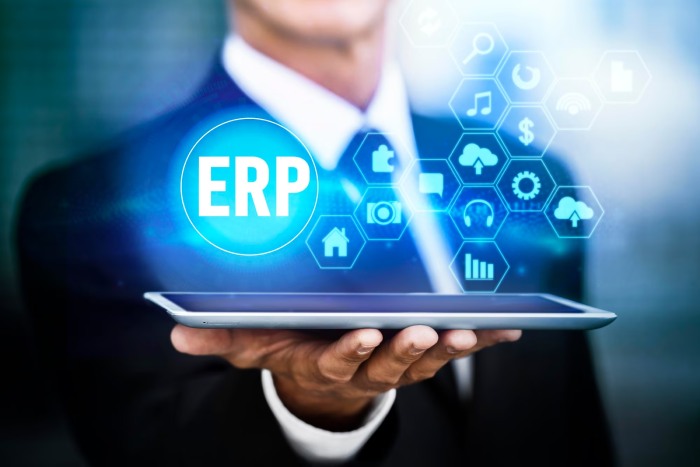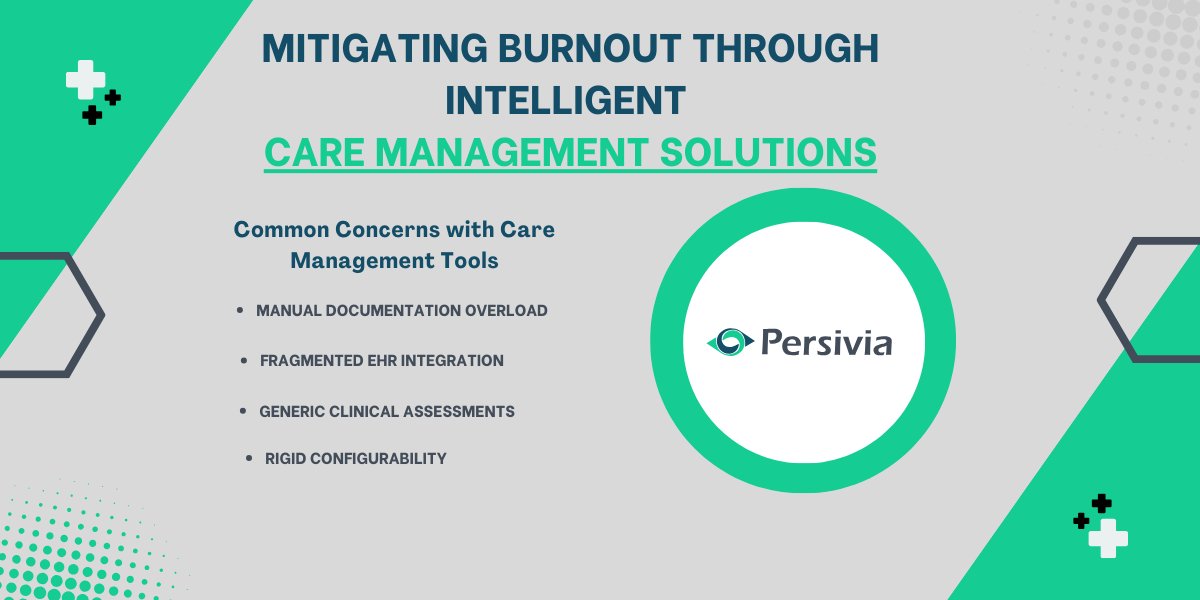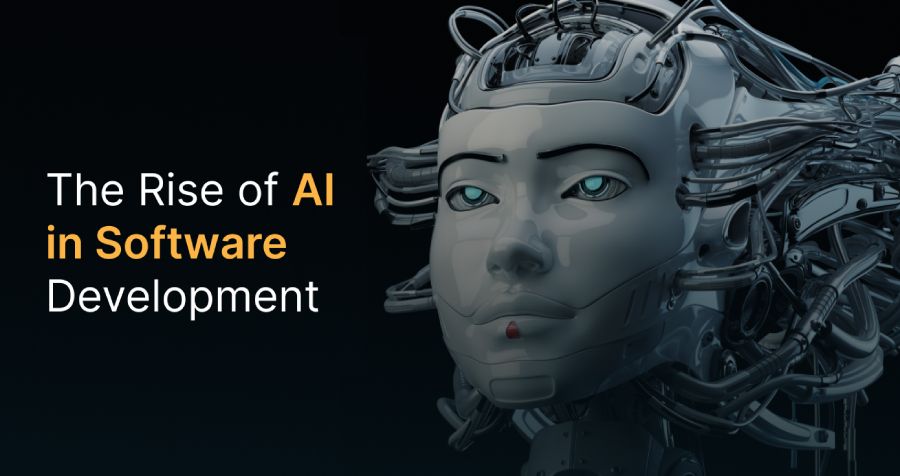
The Future of ERP: Harnessing Artificial Intelligence in NetSuite Implementation
The future of ERP systems in the constantly changing world of enterprise technology lies at the nexus of innovation and intelligence. Companies are rapidly turning to artificial intelligence (AI) to streamline processes, enhance decision-making, and gain a competitive edge. Leading this disruptive movement is NetSuite, an Oracle-backed cloud-based ERP system.
In this blog, we embark on a journey into the future of ERP, exploring how NetSuite implementation harnesses the power of Artificial Intelligence to redefine business processes and elevate organizational efficiency. As we delve into the realm of AI-driven ERP, we will also shed light on the pivotal role played by NetSuite consultants in guiding businesses through this revolutionary transformation.
Understanding ERP and the Evolution of NetSuite:
ERP systems are the backbone of modern businesses, enabling seamless integration of core functions and facilitating data-driven decision-making. With its rich suite of applications, NetSuite has been a trailblazer in the ERP domain, continuously evolving to cater to the developing needs of businesses. Now, with the infusion of AI, NetSuite takes a giant leap forward, propelling businesses into a new era of intelligence-driven efficiency
The Rise of Artificial Intelligence in ERP Systems: AI's rise across industries is undeniable, and ERP systems are no exception. Its ability to analyze vast datasets, identify patterns, and make data-driven predictions brings unprecedented possibilities to ERP users. Integrating AI in ERP empowers businesses with enhanced insights, smarter automation, and a competitive edge that sets them apart in today's dynamic market.
The Evolution of NetSuite:
NetSuite, launched in 1998, has been a trailblazer in the ERP industry, redefining how businesses approach enterprise management. Originally founded as NetLedger, the platform evolved into NetSuite, offering cloud-based ERP solutions that cater to businesses of all sizes and industries. Over the years, NetSuite has undergone significant advancements, shaping its capabilities to align with the ever-changing landscape of business needs.
Cloud Transformation:
NetSuite's transition to a cloud-based platform marked a paradigm shift in ERP solutions. By embracing the cloud, NetSuite offered businesses the flexibility of remote accessibility, data storage, and scalability, eliminating the need for on-premises hardware and complex installations.
Modularity and Customization:
Because of its modular nature, NetSuite enables enterprises to adapt the platform to their needs. Because NetSuite is modular, firms can customize its features to fit their workflows and processes, providing a customized ERP experience.
Seamless Integration:
NetSuite's emphasis on seamless integration with other business applications and third-party systems has been a key factor in its success. The platform's ability to connect and communicate with other software solutions enables businesses to create a cohesive ecosystem that spans various operational areas.
Global Expansion:
As businesses become more interconnected globally, NetSuite expanded its footprint to support international operations. Multi-currency and multi-language capabilities empower businesses to manage their global ventures efficiently and comply with local regulations.
Mobile Accessibility:
Recognizing the growing importance of mobility, NetSuite developed mobile applications that enable users to access critical ERP data on the go. This mobile accessibility enhances productivity and allows decision-makers to stay informed and responsive, regardless of location.
They are incorporating Artificial Intelligence:
NetSuite's commitment to innovation extended to incorporating Artificial Intelligence (AI) and machine learning. NetSuite users gain valuable predictive analytics, automated workflows, and data-driven recommendations by leveraging AI-driven insights, further enhancing operational efficiency and decision-making.
AI Integration in NetSuite Implementation:
NetSuite's commitment to embracing AI is evident in its cutting-edge implementation processes. AI-driven tools streamline data migration, system configuration, and customization, ensuring seamless and efficient adoption of NetSuite. With AI's assistance, NetSuite consultants tailor the ERP system to meet the unique requirements of each business, amplifying its effectiveness and impact.
Integrating Artificial Intelligence (AI) in NetSuite implementation marks a significant milestone in the evolution of ERP systems. AI's transformative capabilities empower businesses with intelligent automation, predictive insights, and data-driven decision-making, driving efficiency and competitiveness to new heights. In this section, we will explore how NetSuite harnesses AI in its implementation process and its profound impact on businesses.
Intelligent Data Migration:
AI streamlines the data migration process during NetSuite implementation. By analyzing data patterns, AI ensures data is accurately and efficiently migrated from existing systems to NetSuite. This reduces the risk of errors and minimizes the time and effort required for data transfer, facilitating a smooth transition to the new ERP environment.
AI-Driven System Configuration:
Traditionally, ERP system configuration involves manual customization, which could be time-consuming and prone to errors. With AI-driven system configuration, NetSuite consultants leverage AI tools to automate the setup and customization process. This accelerates implementation timelines and ensures that the ERP system is tailored precisely to meet the unique requirements of each business.
Predictive Analytics for Process Optimization:
AI in NetSuite empowers businesses with predictive analytics, enabling them to identify patterns, trends, and potential bottlenecks in their processes. With these insights, businesses can optimize their workflows and make data-driven decisions, improving operational efficiency and customer satisfaction.
Intelligent Workflow Automation:
AI-driven automation in NetSuite enables the creation of intelligent workflows that automatically trigger actions based on predefined conditions. For instance, AI can automate routine approval processes, invoice processing, and order fulfillment, freeing up valuable human resources for more strategic tasks.
Personalized Recommendations and Insights:
AI-powered analytics in NetSuite offer personalized recommendations and insights. By analyzing customer behavior and historical data, AI generates tailored product recommendations, targeted marketing campaigns, and personalized customer interactions. This level of personalization enhances customer engagement and fosters long-lasting relationships.
AI-Enabled Customer Service:
NetSuite's AI integration extends to customer service, with chatbots and virtual assistants handling customer inquiries and providing real-time support. AI-driven customer service enhances responsiveness, reduces response times, and ensures consistent support across multiple channels.
Data Security and Fraud Detection:
AI plays a vital role in NetSuite data security and fraud detection. AI algorithms continuously monitor transactions and activities, flagging suspicious behavior and potential security breaches. This proactive approach helps businesses safeguard sensitive information and protect against potential threats.
NetSuite Consultants: Leveraging AI for Enhanced Implementation:
NetSuite consultants are key players in the journey to AI-driven success. Armed with deep knowledge and expertise, they navigate businesses through the complexities of AI integration in NetSuite. Collaborating closely with organizations, these consultants leverage AI-powered insights and tools to create a tailored NetSuite implementation that aligns perfectly with business objectives.
Advantages of AI-Driven NetSuite Implementation:
The benefits of AI-driven NetSuite implementation are manifold. Businesses may make strategic decisions based on current insights thanks to the power of data-driven decision-making. AI automation optimizes workflows, reduces manual efforts, and improves overall productivity, enabling businesses to focus on growth and innovation.
Integrating Artificial Intelligence (AI) in NetSuite implementation brings forth many advantages that revolutionize how businesses approach ERP adoption. By leveraging AI's transformative capabilities, businesses can unlock unprecedented efficiency, gain valuable insights, and achieve a competitive edge. We will explore the key advantages of AI-driven NetSuite implementation:
Accelerated Implementation Process:
AI streamlines various aspects of the implementation process, reducing the time required for data migration, system configuration, and customization. With AI's assistance, businesses can expedite the deployment of NetSuite, minimizing disruptions to daily operations and enabling quicker realization of the ERP system's benefits.
Enhanced Data Accuracy:
AI-driven data migration ensures high accuracy when transferring data from existing systems to NetSuite. Using AI algorithms reduces the risk of manual errors, eliminating data inconsistencies and ensuring businesses have a reliable foundation for their ERP operations.
Intelligent Workflow Automation:
AI-driven workflow automation simplifies and accelerates business processes, improving overall efficiency. Repetitive tasks and approvals can be automated, allowing employees to focus on higher-value tasks, fostering innovation and productivity.
Data-Driven Decision-Making:
AI-powered analytics in NetSuite provide businesses with valuable insights into their operations. AI helps firms make data-driven decisions for strategic planning and growth by identifying trends, patterns, and prospective opportunities through the analysis of enormous amounts of data.
Predictive Insights:
With AI's predictive capabilities, businesses can anticipate future trends and potential challenges. Whether forecasting demand, predicting sales trends, or identifying possible supply chain disruptions, AI helps businesses stay proactive and agile in a dynamic marketplace.
Personalized Customer Experience:
AI-powered CRM capabilities in NetSuite enable businesses to deliver personalized customer experiences. By analyzing customer behavior and preferences, AI generates tailored product recommendations, personalized marketing campaigns, and targeted communications, nurturing lasting customer relationships.
Future Trends in AI-Driven NetSuite:
The future of AI-driven NetSuite implementation is incredibly promising. NetSuite's commitment to AI innovation ensures a continuous flow of advancements that will further revolutionize ERP processes. As AI features become more sophisticated, businesses will have the opportunity to capitalize on new possibilities, enhancing their competitive positioning in the market.
As technology continues to evolve rapidly, the future of AI-driven NetSuite implementation holds immense promise. The ongoing advancements in AI capabilities are poised to redefine how businesses leverage ERP systems and maximize their competitive advantage. In this section, we will explore some of the key future trends in AI-driven NetSuite that businesses can look forward to:
Advanced Predictive Analytics:
The future of AI-driven NetSuite will witness even more sophisticated predictive analytics capabilities. AI algorithms can analyze vast datasets more efficiently, offering businesses deeper insights into market trends, customer behavior, and supply chain dynamics. Advanced predictive analytics will empower businesses with actionable intelligence to make strategic decisions and stay ahead in their industries.
AI-Driven Intelligent Automation:
NetSuite's integration of AI will lead to more intelligent and autonomous automation. With minimal human intervention, AI-driven intelligent bots will handle complex tasks, such as inventory management, order processing, and customer support. It will streamline operations, improve response times, and enhance customer experience.
Voice and Natural Language Interface:
The future of AI in NetSuite will see the integration of voice and natural language interfaces. NetSuite users can interact with the ERP system using voice commands or conversational language, making the user experience more intuitive and seamless.
AI-Powered Chatbots:
AI-driven chatbots will play an increasingly significant role in customer service within NetSuite. These chatbots will be capable of handling complex inquiries, providing personalized recommendations, and resolving issues promptly. AI-powered chatbots will elevate customer support to new levels of efficiency and responsiveness.
Enhanced Security and Fraud Detection:
The future of AI-driven NetSuite will witness security and fraud detection advancements. AI algorithms will continuously monitor user behavior and transaction patterns, promptly flagging suspicious activities. This proactive approach will strengthen data security and safeguard businesses against cyber threats.
Hyper-Personalization:
AI-powered CRM capabilities in NetSuite will lead to hyper-personalization in customer interactions. Businesses can deliver highly customized offers, content, and experiences to individual customers, strengthening customer loyalty and driving repeat business.
AI-Driven Supply Chain Management:
AI's integration into NetSuite's supply chain management will optimize inventory management, demand forecasting, and logistics planning. Businesses will gain a competitive edge by ensuring efficient supply chain operations and reducing lead times.
AI-Enhanced Customer Experience:
AI's role in enhancing customer experience is vital in a customer-centric world. AI-driven customer profiling and personalization within NetSuite enable businesses to cater to individual preferences, nurture lasting relationships, and deliver personalized experiences that foster loyalty and satisfaction.
In the customer-centric age, delivering a superior and personalized customer experience is paramount for businesses. Integrating Artificial Intelligence (AI) in NetSuite empowers businesses to take customer experience to new heights, tailoring interactions and services to individual preferences and needs. In this section, we will explore how AI enhances customer experience within NetSuite, creating lasting impressions and fostering loyal customer relationships.
Personalized Product Recommendations:
AI-driven algorithms analyze customer behavior, purchase history, and preferences to offer personalized product recommendations. AI ensures that clients are shown products that are precisely in line with their interests, whether through email marketing, website ideas, or tailored promotions, which boosts conversion rates and customer happiness.
Intelligent Customer Support:
AI-powered chatbots and virtual assistants provide intelligent customer support within NetSuite. These virtual agents can answer common customer queries, offer quick solutions to issues, and guide customers through the purchase journey. The availability of instant and helpful support creates a positive customer experience, reducing response times and enhancing overall satisfaction.
Predictive Customer Service:
With AI-driven predictive analytics, NetSuite can anticipate customer needs and proactively offer assistance. AI, for instance, may forecast prospective service issues or maintenance needs for certain items, enabling firms to contact customers and address issues before they become serious.
Personalized Communication:
AI enables businesses to deliver personalized customer communications at various touchpoints. Whether through email campaigns, targeted promotions, or personalized content, AI tailors the messaging to suit individual preferences, fostering a sense of connection and relevance.
Streamlined Purchase Journey:
NetSuite customers benefit greatly from integrating AI into the purchasing process. With personalized product recommendations and user-friendly interfaces, AI provides an effortless and seamless buying experience. It reduces friction in the purchase journey and encourages customers to make repeat purchases confidently.
AI-Enhanced Loyalty Programs:
AI-powered programs can reward customers according to their preferences, behavior, and engagement. Through customer data analysis, AI can customize rewards and incentives to cater to specific preferences, which helps boost customer engagement and cultivate loyalty.
Sentiment Analysis:
Businesses can use AI to analyze customer interaction sentiments, like social media posts or feedback. It enables them to measure customer sentiment accurately, recognize possible issues, and take prompt action to address concerns and maintain positivity.

Law Firm Management: How Technology is Driving Efficiency

Most Popular Social Networks: Dominating Online Platform







